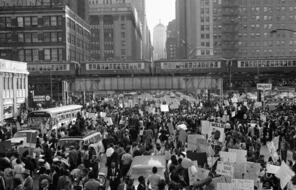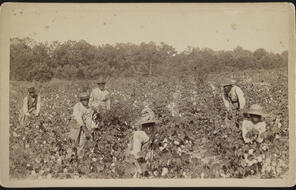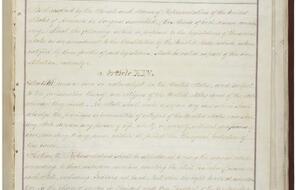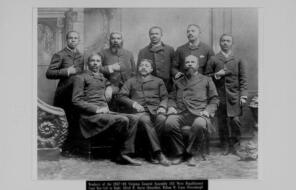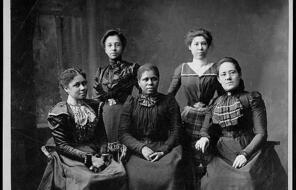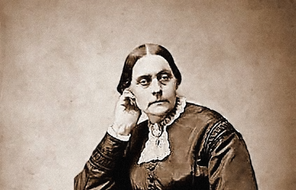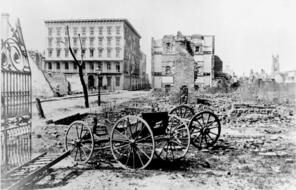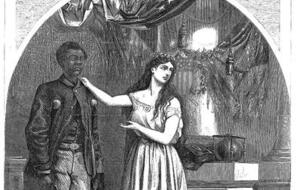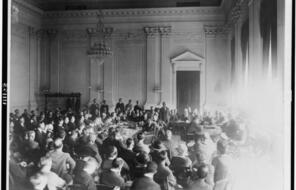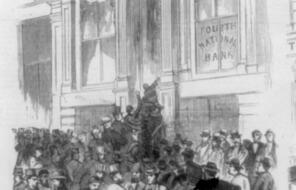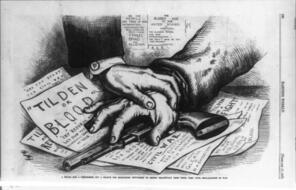Excerpt from "Crusade for Justice"
At a Glance
Subject
- History
- Social Studies
- Racism
The following excerpt from Ida B. Wells’s autobiography, Crusade for Justice, gives us insight into Wells’s decision to take a stand and speak out against racial lynchings. Wells co-owned a Memphis newspaper called The Free Speech and Headlight, and in May of 1892 she traveled to the East Coast to meet with Mr. T. Thomas Fortune, the editor of the New York Age, an African American newspaper. Three months prior to her trip, a white mob had lynched Wells’s close friend, Thomas Moss, in Memphis. His death prompted Wells to publish several editorials in the Free Speech that attacked racial lynching and encouraged Black residents to boycott white stores and leave Memphis altogether. The tone and content of these editorials upset white residents and made Wells the target of racial violence.
Mr. Fortune met me in Jersey City, according to agreement. He greeted me with “Well, we’ve been a long time getting you to New York, but now you are here I am afraid you will have to stay.” “I can’t see why that follows,” said I. “Well,” he said, “from the rumpus you have kicked up I feel assured of it. Oh, I know it was you because it sounded just like you.”
“Will you please tell me what you are talking about?” I asked. “Haven’t you seen the morning paper?” he replied. I told him no. He handed me a copy of the New York Sun where he had marked an Associated Press dispatch from Memphis. The article stated that, acting on an editorial of the Commercial Appeal of the previous Monday morning, a committee of leading citizens had gone to the office of the Free Speech that night, run the business manager, J. L. Fleming, out of town, destroyed the type and furnishings of the office, and left a note saying that anyone trying to publish the paper again would be punished with death. The article went on to say that the paper was owned by Ida B. Wells, a former schoolteacher, who was traveling in the North.
Although I had been warned repeatedly by my own people that something would happen if I did not cease harping on the lynching of three months before, I had expected that happening to come when I was at home. I had bought a pistol the first thing after Tom Moss was lynched, because I expected some cowardly retaliation from the lynchers. I felt that one had better die fighting against injustice than to die like a dog or a rat in a trap. I had already determined to sell my life as dearly as possible if attacked. I felt if I could take one lyncher with me, this would even up the score a little bit. But fate decided that the blow should fall when I was away. . . . My first thought after recovering from the shock of the information given me by Mr. Fortune was to find out if Mr. Fleming got away safely . . .
In due time telegrams and letters came assuring me of Mr. Fleming’s safety and begging me not to return. My friends declared that the trains and my home were being watched by white men who promised to kill me on sight. They also told me that colored men were organized to protect me if I should return. They said it would mean more bloodshed, more widows and orphans if I came back, and now that I was out of it all, to stay away where I would be safe from harm.
Because I saw the chance to be of more service to the cause by staying in New York than by returning to Memphis, I accepted their advice, took a position on the New York Age, and continued my fight against lynching and lynchers. They had destroyed my paper, in which every dollar I had in the world was invested. They had made me an exile and threatened my life for hinting at the truth. I felt that I owed it to myself and my race to tell the whole truth.
Having lost my paper, had a price put on my life, and been made an exile from home for hinting at the truth, I felt that I owed it to myself and to my race to tell the whole truth now that I was where I could do so freely. 1
- 1Ida B. Wells, Crusade for Justice: The Autobiography of Ida B. Wells (Chicago: University of Chicago Press, 2020), 53–62.

